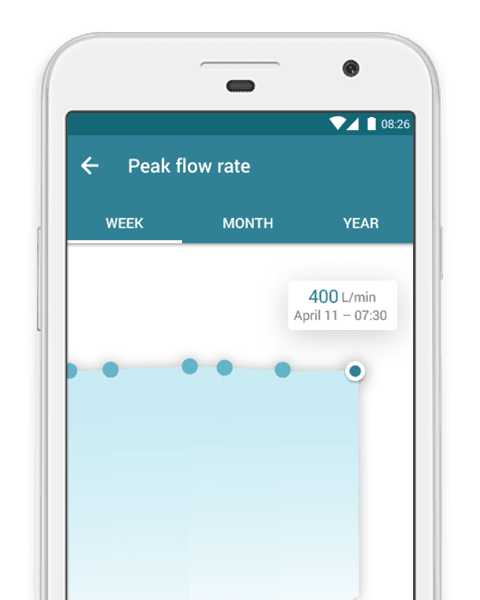Many people consider asthma to be a condition that starts at a young age and causes wheezing while breathing. While that is often true, there are other common symptoms that people don’t usually associate with asthma. What’s more, adult-onset asthma is more common than many people think and can be serious, even deadly, when left untreated. Here are five symptoms of adult-onset asthma you should be aware of.
1. Chronic Dry Coughing
Coughing is one of the most common and recognizable symptoms of asthma; it tends to get worse at night and early in the morning. It is often a wet (or productive) cough, meaning mucus or phlegm comes up. It is a symptom of typical asthma and a person living with it will usually experience other typical symptoms such as wheezing, shortness of breath, and chest tightness.
However, chronic dry (non-productive) coughing is a less obvious sign of asthma; specifically, it is a symptom of a form of asthma called cough-variant asthma. Cough-variant asthma is particularly difficult to diagnose as there aren’t usually any other symptoms.
As is true of typical asthma, it’s not entirely clear what causes cough-variant asthma to occur. Like typical asthma, there is a strong association with allergies. Cough-variant asthma can also be triggered by respiratory infections, such as sinusitis, and it can be a reaction to medications such as beta-blockers (used to treat high blood pressure, among other conditions).
If left untreated, it is estimated that around one-third of people with cough-variant asthma will subsequently develop typical asthma. If you are suffering from a persistent dry cough, therefore, you should speak to your doctor about the possibility of cough-variant asthma. Once diagnosed, it is usually treated in the same way typical asthma is.
Other posts you may be interested in on the MyTherapy blog:
- Living Well with Asthma: How to Get Enough Exercise
- 4 Smart Inhalers that Could Be Lifesaving for People Living with Asthma & COPD
2. Yawning and Sighing
Yawning and sighing a lot, even if you are not tired, is one of the more unusual symptoms of asthma. It is not clear why people with asthma are more likely to yawn and sigh more than normal, but it could be related to breathing.
Hyperventilating is when you breathe more quickly and deeply than normal. Although most people think of hyperventilating as being rather dramatic – in the event of a panic attack, for example – it can become a habitual way of breathing and causes you to exhale too much carbon dioxide. Your body reacts to this imbalance by yawning and sighing.
Breathing like this, if not caused by a medical condition, is called dysfunctional breathing; it is estimated that 29% of people with asthma have dysfunctional breathing compared to 8% of the general population.
One theory is that people living with asthma are more likely to have anxiety, which has been linked to excessive yawning and sighing. You can read more about that here:
Beyond the link with anxiety, quite why people with asthma are more likely to have dysfunctional breathing is not completely known. However, if you do notice yourself yawning and sighing a lot, it is worth trying to understand the cause. If you have any reason to believe it could be a sign of asthma, you should speak to your doctor.
3. Sleep Disturbances
As with many things regarding asthma, exactly why symptoms worsen at night is not known. However, symptoms such as wheezing and coughing worsening at night is a pattern many people living with the condition are familiar with.
Many researchers believe the circadian rhythm – the 24-hour biological cycle your body goes through – plays a role; there is evidence that airway resistance increases overnight (regardless of sleep) and that airway function decreases when you sleep. These are believed to be true of all people but are what causes an exacerbation of symptoms in people living with asthma.
Regardless of the exact mechanisms, the pattern of asthma symptoms worsening overnight is well established, with the term nocturnal asthma being coined to describe the phenomenon.
Of course, many things can disturb your sleep. However, if you (or your partner) notices that your sleep is regularly disturbed by coughing, wheezing, and breathlessness, asthma should not be ruled out as the culprit.
4. Fatigue
Asthma can make you tired and fatigued even if you are getting plenty of sleep. It is widely believed to be a result of oxygen deprivation which, like the symptoms of yawning and sighing, can be caused by dysfunctional breathing.
A lack of oxygen makes it difficult for your body to adequately oxygenate your bloodstream, making you feel weak and tired.
Fatigue has been found to be more severe in people with uncontrolled or partially controlled asthma than in people with controlled asthma. Of course, if you have asthma but have not been diagnosed, it is far more likely you will fall towards the severe end of the scale.
Fatigue can be debilitating and seriously impact your quality of life, regardless of the underlying cause, yet many people avoid seeing a doctor persevere with it if there are no other obvious symptoms. However, chronic fatigue alone can be a warning sign of a serious condition, with asthma being a real possibility.
5. Acid Reflux
Gastroesophageal reflux disease (GERD) causes stomach acid to flow back into your esophagus – the tube connecting your throat and stomach – causing the uncomfortable feeling of heartburn in your chest. Although most people experience heartburn now and then, people with GERD experience it regularly.
Over 75% of people with asthma are estimated have GERD, compared to an estimated 25% to 40% of the general population.
It is easy to ignore heartburn or to deal with it by taking over-the-counter medicines. However, if it a regular occurrence, it can cause a variety of health issues, including damaging your esophagus, which can lead to ulcers. This, alone, is reason enough to take GERD seriously and see your doctor.
The link with asthma means you should mention any other symptoms you are experiencing – including those mentioned here – even if they are not particularly severe.
Don’t Ignore the Warning Signs
Asthma can be a tricky condition to diagnose, especially when symptoms are not the ones typically associated with it. This is particularly true of adults, given the widespread misconception that it is a childhood disease. Many people explain symptoms such as shortness of breath and fatigue as simply signs of aging, being out of shape, or because of a different condition.
However, if you do develop adult-onset asthma, symptoms are often more persistent, severe, and potentially life-threatening. Adults in the US are four times likelier to die from asthma than children, despite it being more prevalent in children. Many of these would be avoidable with proper treatment.
Although the symptoms listed here may have other, less serious explanations, the risk of asthma should not be dismissed. If you think you may have asthma, you should speak to your doctor about your concerns; it is better to be safe than sorry.
Take a look at some of the other posts on the MyTherapy blog:
- The Surprising Link Between Psoriasis & Sleep Apnea
- How Exercise Can Lower Your Cholesterol & Keep Your Heart Healthy
Learn about common asthma medication from our DrugWiki FAQ pages:



